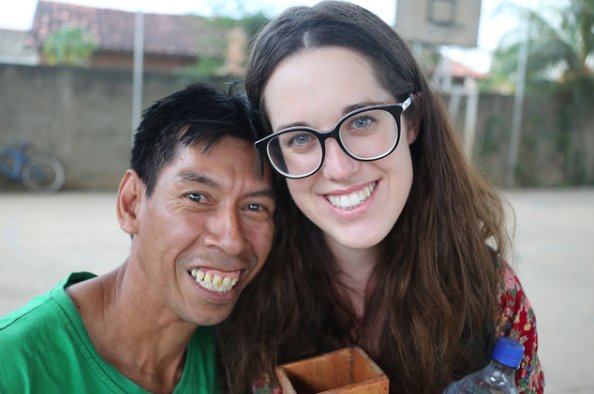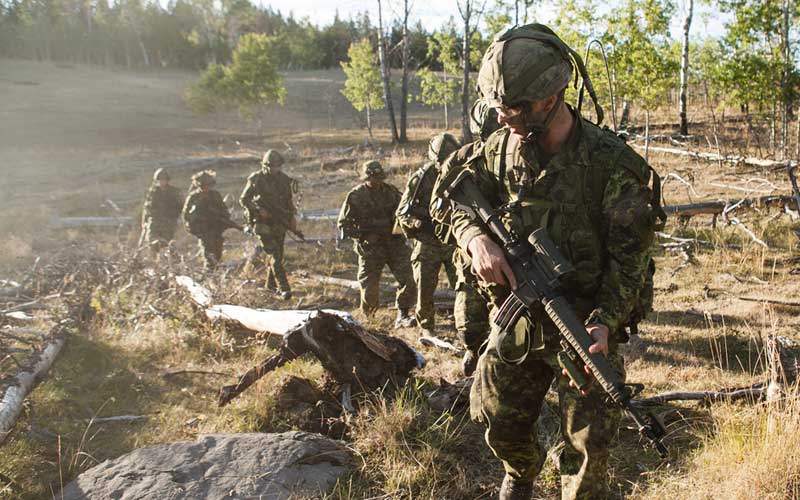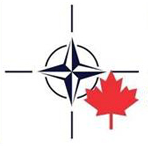Melanie Rodriguez is the Executive Director of the Alma Foundation, a non-profit organization that seeks to empower children in Latin America through community-based education projects. The Alma foundation works in remote communities with an average of 50 families and is currently managing 29 education projects in both Peru and Bolivia. Alma’s projects help children at all stages of the education system, with programs from the pre-school to the secondary and higher education levels.
Program Editor Jemma Finnegan sat down with Mrs. Rodriguez to discuss the Alma Foundation and the non-profit industry today.
Jemma Finnegan: Thank you so much for coming in to speaking with me today Melanie! Could you start by telling our readers a bit about yourself and the work of the Alma Foundation?
Melanie Rodriguez: I am the Executive Director at the Alma Foundation. I joined the foundation in 2015, primarily because of strong alignment of mutual values. The Alma Foundation is dedicated to improving the standard of living for Children in Latin American through education, principled on the idea that if you develop critical thinking, reading comprehension and resilience in children they will become agents of change in their communities.
JF: The importance of reading comprehension is self-explanatory, but can you explain why critical thinking and creativity are such important skills to develop?
MR: By teaching critical thinking and creativity you are giving these children the tools to become problem-solvers and innovators. These skills are really what is going to be invaluable to them and hopefully allow them to begin to solve their problems without outside intervention.
JF: What are the kinds of education programs that the Alma Foundation implements?
MR: The programs we implement in our communities are all different because they are modelled on each community’s unique needs.
For example, in a remote community with limited access to a local primary school, we would implement an early education program to help children keep on par with their peers. In this type of program, we will work with children of pre-school age and help them develop very basic skill such as, counting, writing and fine motor abilities.
In Peru, there is an extremely prevalent gap between what they teach you in high school and what is on university entrance exams. Only children who attend private after-school programs are well-equipped with the abilities to take these exams. In communities lacking these resources, we implement programs that teach children what will be on these entrance exams and also prepare them to take scholarship examinations.
In everything we do, we try to get the parents involved and give them the resources to help their children. One of the things my Program Director likes to encourage is getting parents of younger children to make little mud balls. Although it may seem simple, making these ‘mud balls’ helps children develop the muscles they need to hold a pencil or write.
JF: It’s very interesting that all of your programs try to involve the parents. Do you find that giving the parents a form of responsibility is beneficial to the success of a program?
MR: Yes, it is actually one of the most important things to us. We cannot work with a community if the parents are not involved. Alma is not a permanent fixture but a temporary support system. The parents are a key element in our process, and ensure that when Alma exits the community the impact will not leave with us.
When you engage parents they become invested in a project. Parents then become active players in their children’s success and development. It is also a happiness and enjoyment factor; parents feel extremely proud of the program’s results.
JF: The Alma Foundation’s founder Alan Harman started the organization after visiting South American with his family. He first donated to local charities but was disenchanted with their results so decided to create a foundation with a set of guiding principles that would have a sustainable impact. These principals are distinct and progressive. Can you speak a little bit about them?
MR: Our Guiding Principles really define the elements that make a project successful and sustainable. We are not only thinking about what’s sustainable in relation to international development, but also what’s feasible within our own means. The Guiding Principles help us determine what projects to invest in and which ones we should say no to.
The principles of local engagement, grassroots and micro-philanthropy support the idea that we don’t want to be there forever. In a perfect world we wouldn’t have to exist. Our Guiding Principles ensure that every project we begin will eventually become self-sufficient.
JF: In reference to your ‘grassroots principle,’ how does the Alma Foundation assess what programs to implement in a given community?
MR: The relationship building before Alma goes into a community is extremely lengthy. Before we decide to implement a project, our Program Coordinators will visit a community a few times to gather data about their biggest needs. Our Program Director will then do the same and spend a few days with the community. Based on specific criteria quite similar to our Guiding Principles, we will then determine if we should invest in the community based on the information gathered.
An extremely important part of this initial contact is developing a relationship with the community in question. It’s not as simple as asking what a community needs – we actually need to build a relationship with them to assess the best avenues of action.
JF: Why is community engagement and involvement so essential?
MR: There is no way that you can lead a project without community support. There is also no purpose. If a community doesn’t want something, then it is unfair is to force it upon them. Communities are responsible for sustaining these projects and we need them to be a partner of ours and not just a beneficiary.
JF: Self-sufficiency is a long term goal of all Alma Foundations Projects. Why is it important to foster a sense of local ownership and involvement in these kinds of initiatives?
MR: We won’t be in these communities forever. The Alma Foundation is really committed to building relationships with the community, the government and every stakeholder so that our projects can be self-sufficient. It is extremely important to have a dedicated base. Without one there is no insurance that our projects will continue to have an impact after we leave.
JF: Can you speak a bit about the distinction between ‘hand ups’ versus ‘hand outs’ in international development?
MR: Every team member we have really believes in this distinction. When you give a ‘hand out’ you can do a lot of damage. A lot of NGOS have given these hand-outs to communities in Latin America and have unfortunately created a cycle of dependency. This makes it very difficult to work in these areas as the culture of dependency completely undermines the goal of self-sufficiency.
All of Alma’s programs follow the ‘hand up’ approach. It’s not just that its sustainable, it is also the moral and ethical thing to do.
JF: On the Alma Foundation’s website, you mention actively avoiding the ‘success bias’ that tends to dominate how many charity’s report on their achievements. Instead, the Alma Foundation focuses on assessing a set of key goals every three months culminating in a detailed project evaluation when a project ends. Can you tell me a bit more about the qualitative measurements the Alma Foundation uses to evaluate success?
MR: Alma operates in almost a completely different way compared to other charities. We don’t have any employee whose compensation or professional evaluation is based on the performance of a project. Passing judgment on someone’s career, based on the success of failure of a program is dangerous. You are going to get a huge bias in reporting and magically every projects will be a success. Instead, we have a constant stream of communication between our Program Director and Program Coordinators. They speak weekly about the challenges the programs are facing and how to reach a positive solution.
We have really interesting ways to measure our qualitative progress. It is difficult to measure gains in critical thinking, communication and problem-solving skills. Our solution to measuring the development of these skills is through individual student portfolios which integrate videos from both the beginning and end of an academic year.
JF: Ok here’s a big question: what kind of characteristics would you like to see more of in the non-profit sector?
MR: One of the primary changes I would like to see is a larger focus on depth of impact opposed to breadth of reach. Impact is not determined by how many people you reach but how you support and advance individuals in their personal goals.
JF: Do you think it’s dangerous to apply the same models and margins to the non-profit sector that are applied to the for-profit industry?
MR: Focusing on immediate returns, is an issue. I think the non-profit industry needs to learn how to more effectively explain the long-term impact model to all stakeholders. I can understand why someone would want to see an immediate return on their investment, but immediate returns do not always lead to a long-term sustainable impact. Non-profits are businesses and we should be held to margins. That said, these expectations need to align with creating long-term, sustainable change.
JF: As the program editor for Global Horizons, NAOC’s outreach program aimed at engaging high school students in international affairs, I have to ask you if you have any advice to give students interested in becoming involved in the development sector?
MR: I think the best way to start getting involved is volunteering. Volunteering will allow you to find a cause or organization that resonates with you. The non-profit sector, like the for-profit sector, has so many different streams and positions. By volunteering you can gain experiences, grow your network and really see what you like about certain organizations. Maybe you’re better in a larger organization that has structure and can really scale its impact or maybe you’re someone who prefers a small one. But you will not figure that out unless you get involved.
If you want to make an impact try to figure out what you’re passionate about early on, it will be invaluable to you.
Photo: Courtesy of the Alma Foundation via Flickr.
Disclaimer: Any views or opinions expressed in articles are solely those of the authors and do not necessarily represent the views of the NATO Association of Canada.




